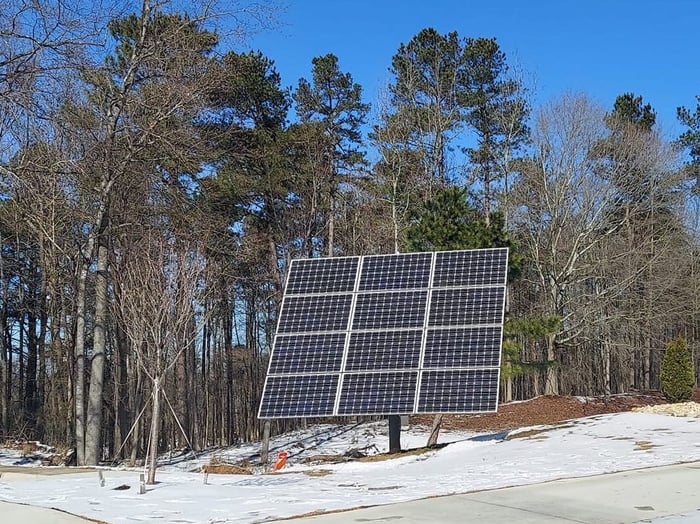In July 2021, Drawdown Georgia and the Georgia Climate Project launched Drawdown Georgia Higher Ed to support exploration and climate action in the classrooms and on the campuses of colleges and universities across Georgia. In this series of posts, we’re spotlighting and celebrating higher education’s leadership in climate action by sharing stories of new projects.

Shining a Light on Solar at University of North Georgia
The Drawdown Georgia Higher Ed Series is excited to shine a light on a new solar panel project underway at the University of North Georgia (UNG). In recent years, the President’s Committee on Sustainability has been leading the university’s sustainability efforts. With the support of the president, this committee of faculty, staff, and student representatives advances the school’s sustainability goals. Building on the school’s bronze rating from the Association for the Advancement of Sustainability in Higher Education’s Sustainability Tracking, Assessment & Rating System (STARS) and its four-time recognition as a Tree Campus USA, the solar panel project marks the next step towards a more sustainable UNG.
In 2019, several buildings that formerly belonged to Lanier Technical College were acquired by the UNG Gainesville campus, one of five campuses across northern Georgia. Sixty-two solar panels already installed at this newly acquired location offered a jumping-off point for the University’s newest sustainability opportunity. When the buildings were renovated in 2020, UNG added an additional 125 solar panels to the Gainesville campus. Now, some of these panels power the newly acquired buildings while others provide electricity to streetlights or outdoor charging stations around the campus.

Collaborating to Scale Climate Solutions
Collaboration was crucial in the planning and execution of this project.
The Faculty Senate, a group of faculty that recommends policies to the president, identified the opportunity for solar energy at the Gainesville campus. The President’s Committee on Sustainability supported the solar project idea. Faculty members from UNG’s engineering programs and Institute for Environmental & Spatial Analysis (IESA) shared their expertise on how the panels would work and where they could be located. UNG worked with Georgia Power on using the solar energy produced by the panels to power the school’s buildings. Facilities staff, who would be responsible for installing and maintaining the panels, shared their knowledge of the buildings and equipment themselves.
Dr. Jamie Mitchem, professor in IESA and then-chair of the Faculty Senate, explains: “This was truly a team effort. The collaboration of faculty across departments and campuses with the staff from Facilities and support from the administration were pivotal in the success of this project. We all had a common goal of being responsible stewards of our resources while becoming more sustainable.”
Solar Benefits Beyond Carbon
The solar panels were funded through the Facilities budget and are expected to pay for themselves in nine years through energy cost avoidance. In addition to future cost savings, the panels will also provide data on energy production, greenhouse gas emissions avoided, and economic savings. This information will be used by students and faculty for research projects and in planning for new solar arrays across UNG. The school is already committed to installing panels on the Blue Ridge campus.

Other Sustainability Initiatives at UNG
Solar energy is one of many sustainability initiatives at UNG. The school currently offers electric vehicle charging stations at four of its campuses, and it will soon have stations at all five. The presence of these stations across northern Georgia will expand the network of publicly available charging stations in the region.
UNG is also working on recycling and composting efforts, and the university hopes to hire a sustainability coordinator in the coming years to further expand its sustainability efforts across all five campuses.
You can also read more about sustainability efforts at other Georgia colleges and universities in the previous posts in this series, including an electric bus initiative at the University of Georgia and solar and energy-efficiency projects at Agnes Scott College.









